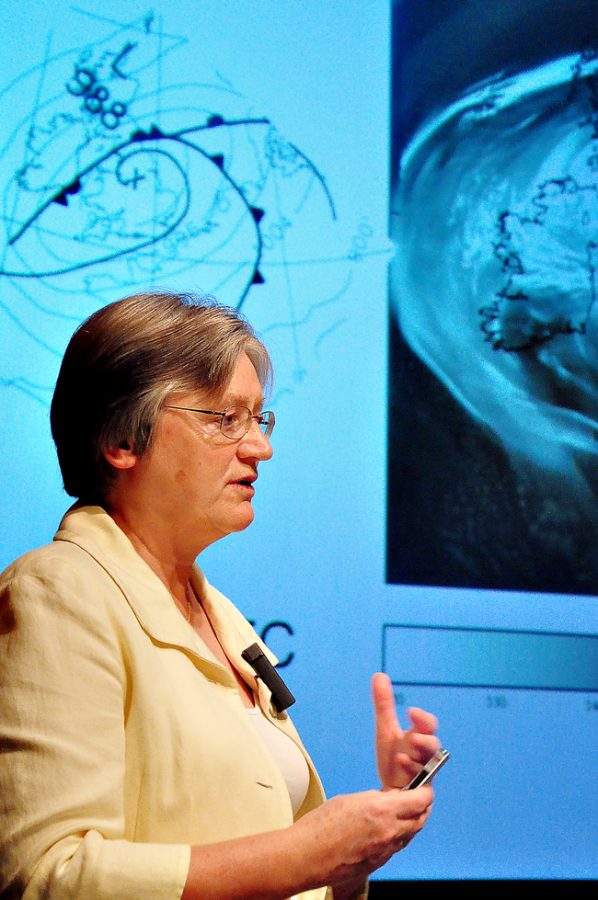Although there has been a growth in the technology that forecasts climate change, scientists are not equipped to effectively deal with natural disasters, said climatologist and University of Reading professor Julia Slingo.
UT’s Environmental Science Institute hosted a lecture covering weather and climate on Wednesday. Slingo, the chief scientist at the Met office, United Kingdom’s National Weather Service, spoke about her current research on the environmental impacts of diverse weather patterns and her work with the Intergovernmental Panel on Climate Change.
Slingo said that although she has seen progress being made through the Met Office and other climate change organizations, there is much to be done in order to successfully react to climate change. The Met Office has recently developed a Science Strategy, which condenses future endeavors regarding climate change into four main challenges, she said.
“We’re more vulnerable to climate change today, period,” Slingo said. “And we are not prepared.”
The 2010 flooding in Pakistan, a disaster that affected over 20 million people in an area roughly the size of the England was the worst incident of flooding since 1929, Slingo said. The flooding, along with Indian monsoons, had adverse affects on human health, wellness and the environment, she said.
Slingo said she remains uncertain as to whether the floods could have been detected earlier using current technology, but recent technological developments have progressed the understanding of short- and long-term effects of climate change.
The recent plunge in the UK’s winter temperatures has also led to weather conditions so severe that hazardous traffic conditions ensued, Slingo said.
She said she believes that humans are still ill-equipped in effectively responding to extreme weather occurrences.
Slingo believes that these future challenges include dealing with an increasing complexity of models and prediction systems as well as developing partnerships between nations and more vulnerable regions to create collaboration on climate change issues. She said she remains confident that together, the countries in the world can make science work in society.





















